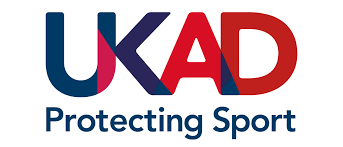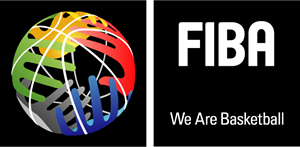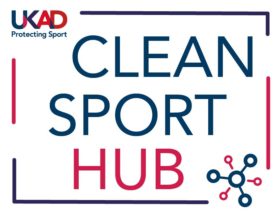Anti DopiNG -British Basketball
The British Basketball Federation (BBF) is governed by and adopts the FIBA Regulations Book 4 on Anti Doping and the UK Anti Doping Rules (as per Article 1.1.3) and any amendments there to, as part of its Integrity Policy Framework.
All athletes have the right to compete in sport knowing that they, and their competitors, are clean. We believe in clean sport and work in partnership with UK Anti-Doping (UKAD) and FIBA to ensure that the integrity of our sport is protected.
In anti-doping, athletes are responsible for their actions: including what they eat and drink. This is known as the principle of ‘strict liability’
Anti-Doping Rules
The BBF has in place a set of anti-doping rules that all athletes and athlete support personnel must abide by. The anti-doping rules for the BBF are consistent with the World Anti-Doping Code (the Code), the core document that harmonises anti-doping policies, rules and regulations within sport globally
The anti-doping rules of the BBF are the rules published by UK Anti-Doping (or its successor), as amended from time to time.
The BBF, its members and licensed leagues take a united stance against the use of all prohibited substances.
The BBF works closely with FIBA and UKAD in enforcing a zero tolerance on these matters.
UKAD REMINDER – Recreational Athlete: An Athlete who is under the jurisdiction of the NGB and who, within the five (5) years prior to committing any Anti-Doping Rule Violation, (A) has not been an International-Level Athlete (as defined by each International Federation consistent with the International Standard for Testing and Investigations) or a National-Level Athlete (as defined by UKAD in these Rules); (B) has not represented Great Britain or any other country in an International Event in an open category; and (C) has not been included within any Registered Testing Pool or other whereabouts information pool maintained by any International Federation or National Anti-Doping Organisation
In line with the 2021 Code, the following flexibility in sanctioning exists for Recreational Athletes under the UK ADR:
- No requirement to establish how a prohibited substance entered the athlete’s system to benefit from the No Significant Fault or Negligence rule (via definition of ‘No Significant Fault or Negligence’)
- Article 10.6.1(c): Where the anti-doping rule violation not involving a Substance of Abuse is committed by a Protected Person or Recreational Athlete, and the Protected Person or Recreational Athlete can establish No Significant Fault or Negligence, then the period of Ineligibility shall be, at a minimum, a reprimand and no period of Ineligibility, and at a maximum, two years Ineligibility, depending on the Protected Person or Recreational Athlete’s degree of Fault.
- Article 13.8: A decision on appeal that an Anti-Doping Rule Violation has been committed may be Publicly Reported immediately, and shall be Publicly Reported within twenty (20) days of the date of the decision. However, this mandatory Public Reporting requirement shall not apply where the Athlete or other Person who has been found to have committed an Anti-Doping Rule Violation is a Minor, a Protected Person, or a Recreational Athlete. Any optional Public Reporting in a case involving a Minor, a Protected Person, or a Recreational Athlete shall be proportionate to the facts and circumstances of the case.
As a reminder, that all athletes – whether defined as a ‘National Level Athlete’ or ‘Recreational Athlete’ – are still bound by the UK Anti-Doping Rules. The only difference between the two groups of athletes are the above referenced flexibilities in sanctioning.
British Basketball Federation Statement on Anti Doping Rules and their application in the sport. CLICK HERE –
Click here to View the WADA 2022 World Anti Doping Code Prohibited List comes into force on the 1st January,2022
Click here for 2022 Info Graphic on WADA Prohibited List
OCTOBER 2023 WADA UPDATE World Anti-Doping Agency (WADA) has published the 2023 Prohibited List and a summary of key changes, found here.
Tramadol will be prohibited in-competition from 1 January 2024. Please go to UKAD’s website for more information.
Click Here For Introduction to Clean Sport – In anti-doping, athletes are responsible for their actions: including what they eat and drink. This is known as the principle of ‘strict liability’
Click here for Clean Sport Essentials – Parents / Carers of Young Athletes.
Click here for Information on the Anti Doping Testing Process
Click here for Glucocorticoid Decision Info Graphic
Click here for information on submitting a TUE for NON International Events to UKAD – Includes Commonwealth Games
Click here for Information on submitting a TUE for FIBA International Events.
Click Here for the BBF Web Page with links to Information and Resources
Click on the pictures below to view the FIBA Regulation and UKAD Policy documentation in full.
The Clean Sport Hub is UKAD’s new platform for clean sport education! Click on the picture to access the UKAD Clean Sport Hub.
The hub will allow easier access and tailored courses for athletes, coaches, parents, support staff and anyone who is interested in protecting clean sport. UKAD will be introducing more courses soon, so if you don’t see a course for you right now, make sure you check back soon as they are adding more exciting options shortly! If you have any questions or issues logging in, send UKAD an email at cleansporthub@ukad.org.uk.
OCTOBER 2023 UPDATE –
Compete Clean+ eLearning Course
UKAD are delighted to launch a new 100% me athlete eLearning course – Compete Clean+. Athletes can access the course via the Clean Sport Hub. If already registered on the Clean Sport Hub, the course has been applied to their account and for new registrants it will be automatically assigned



